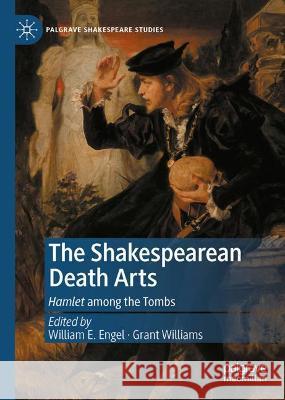The Shakespearean Death Arts: Hamlet Among the Tombs » książka
topmenu
The Shakespearean Death Arts: Hamlet Among the Tombs
ISBN-13: 9783030884895 / Angielski / Twarda / 2022
The Shakespearean Death Arts: Hamlet Among the Tombs
ISBN-13: 9783030884895 / Angielski / Twarda / 2022
cena 644,07
(netto: 613,40 VAT: 5%)
Najniższa cena z 30 dni: 578,30
(netto: 613,40 VAT: 5%)
Najniższa cena z 30 dni: 578,30
Termin realizacji zamówienia:
ok. 16-18 dni roboczych.
ok. 16-18 dni roboczych.
Darmowa dostawa!
Kategorie:
Kategorie BISAC:
Wydawca:
Springer Nature Switzerland AG
Seria wydawnicza:
Język:
Angielski
ISBN-13:
9783030884895
Rok wydania:
2022
Wymiary:
21.0 x 14.8
Oprawa:
Twarda
Dodatkowe informacje:
Wydanie ilustrowane











